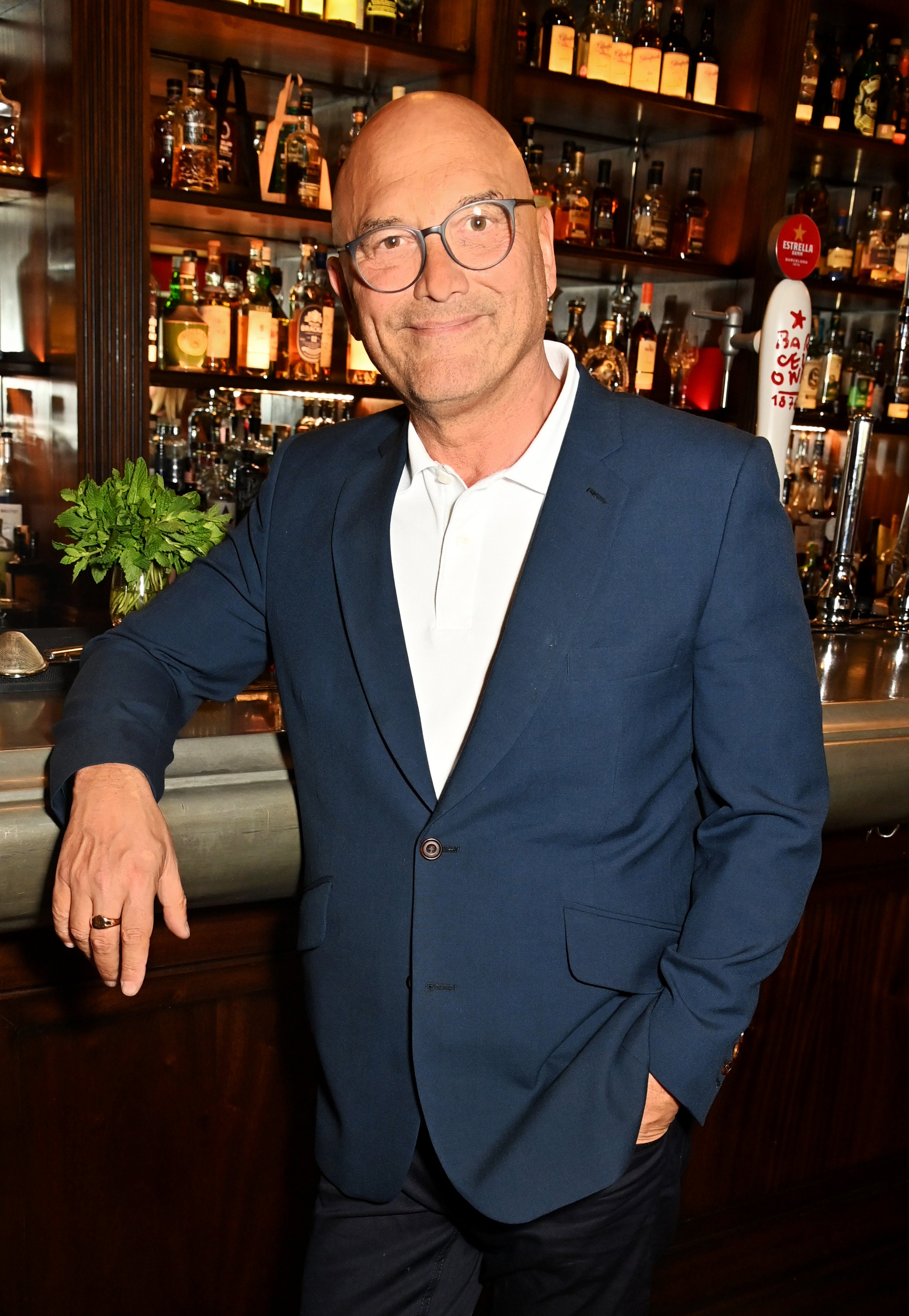In the space of just a year, Gregg Wallace’s public perception has metamorphosed entirely. Descriptions of the TV presenter would historically be seasoned with epithets like “cheeky chappy” and “salt of the earth” (Wallace, meanwhile, described himself as “the fat, bald bloke off the telly who likes pudding”). Now, though, the MasterChef star’s image has irrevocably soured.
In November, Wallace made headlines after he was accused of a string of workplace misconduct allegations, going back almost two decades. Last week, BBC News reported that a further 50 people had approached the corporation with new claims (Wallace denied all the allegations). And on Monday (14 July), an independent report upheld 45 out of 83 allegations against him, including claims of unwelcome physical contact and inappropriate sexual language. In response, the BBC admitted that “opportunities were missed to address this behaviour – both by the production companies running MasterChef” and the broadcaster itself.
It is a spectacular fall from grace for a man who was once one of British television’s most ubiquitous stars, hired as the face of shows spanning food, travel and history – but the report doesn’t mark the end of the BBC’s Wallace problem. An entire season of MasterChef is in the can, recorded last summer before the allegations emerged, but bosses now face the unenviable task of trying to decide whether or not to air it.
Wallace’s childhood was a tumultuous and painful one. Born in Peckham in 1964, he was sexually abused by the husband of a babysitter at the age of eight. “It was quite a horrendous situation for a young boy,” he told the Men in Mind podcast in 2023, recalling that he “didn’t tell anybody at the time”. In his early teens, his parents broke up, with his mother later marrying a man who turned out to be Wallace’s biological father. In the wake of this split, the adolescent Wallace “lost all direction”; by the age of 15 he had dropped out of school and was living alone in a London flat.
Around this time he started working on a vegetable stand at Covent Garden Market. In an interview with The Times, Wallace recalled some of his innuendo-ridden sales patter, telling the writer he’d sell cucumbers using lines such as “Awright luv, it’s not like your old man’s. It won’t get bigger the more you touch it.” In his twenties, he went on to start his own business, George Allan’s Greengrocers, supplying fancy restaurants such as Quaglino’s, where his future MasterChef co-host John Torode was then working as a chef.
It wasn’t until the early 2000s, though, that Wallace started his broadcasting career. He was hired as a presenter on BBC Radio 4’s show Veg Talk alongside Charlie Hicks, chatting about, well, vegetables in soon-to-be signature down-to-earth style (not everyone was a fan, with some critics finding his barrow-boy manner grating). Soon after, he was hired as the first presenter of Saturday Kitchen, sticking around for a season before being replaced by Antony Worrall Thompson.

In 2005, Wallace got his biggest TV break when he and Torode were announced as the presenters and judges of a rebooted version of the cooking competition MasterChef, which would become a major hit for BBC Two before being promoted to BBC One. He and Torode had contrasting styles, with Wallace’s ebullience and, yes, often lightly innuendo-laden remarks juxtaposed with the Australian’s more measured, technical approach, rooted in his more formal culinary training. It worked on screen, but in 2017, comments from an interview with Torode about their behind-the-camera relationship raised eyebrows. “It’s funny, we’ve never been friends,” the chef said, despite having been Wallace’s best man the previous year. “We’ve not been to each other’s houses. If we go away to somewhere like South Africa, we do things separately.”
For now, though, Wallace’s cheeky persona and straightforward enthusiasm for food seemed to be a hit with viewers. His love of desserts went viral in the 2010s when a snippet from the programme, showing Wallace raving over a “buttery biscuit base”, was remixed with a dance beat (it eventually became a Top 40 hit).
TV commissioners seemed to like him, too: he was soon signed up to present a whole host of shows, including Eat Well for Less?, Inside the Factory and Time Commanders for the BBC, Big Weekends with Gregg Wallace for Channel 5 and South Africa with Gregg Wallace for ITV. By 2014, he was ubiquitous enough to bag a place on the Strictly Come Dancing lineup, although he and dance partner Aliona Vilani left the show after the very first public vote.

Watch Apple TV+ free for 7 day
New subscribers only. £8.99/mo. after free trial. Plan auto-renews until cancelled.
Try for free
ADVERTISEMENT. If you sign up to this service we will earn commission. This revenue helps to fund journalism across The Independent.

Watch Apple TV+ free for 7 day
New subscribers only. £8.99/mo. after free trial. Plan auto-renews until cancelled.
Try for free
ADVERTISEMENT. If you sign up to this service we will earn commission. This revenue helps to fund journalism across The Independent.

But while his work seemed to go from strength to strength, his personal life was much trickier. His first marriage lasted just six weeks, while his second, to pastry chef Denise Lovell, continued for five years (the former couple share two children). In 2010, he married Heidi Brown, a biology teacher 17 years his junior, after meeting her on Twitter, where she’d sent him a message about celery. They split after 15 months, and a few years later, Wallace would find another partner on social media, when caterer Anne-Marie Sterpini, 21 years his junior, messaged him to ask whether rhubarb went with duck. “You can’t chat anyone up at work because the HR department would sack you,” he later said of this surprising way of meeting potential partners. “What I like about Twitter is that it is not a dating site.” The couple are parents to a five-year-old son, Sid.
Perhaps the first cracks in his reputation started to emerge in 2023, when Wallace stepped down from Inside the Factory, the BBC Two show he’d co-presented with Cherry Healey for eight years. A report in The Times alleged that he had “offended female staff” at a Nestlé factory in York with his “inappropriate banter”, apparently relating to the weight of the workers. Later, in an interview with the paper, Wallace described this as “inaccurate”, and claimed that he “use[s] humour to relax people” and “never, ever set out to upset or offend” others. “It makes me upset that I might have upset people,” he added.
A strange addition to the Wallace saga arrived the following year, when he described his typical Saturday to The Telegraph, boasting about possessing a “six pack” and “less than 18 per cent body fat” and explaining that he’d enjoy a morning breakfast with his assistant at a local Harvester restaurant (which drew irresistible parallels with Steve Coogan’s comedy character dining with his long-suffering assistant Lynn in I’m Alan Partridge). He also revealed that he would spend 90 minutes with his son, who has autism (two hours were allocated to playing a history-themed computer game). That particular detail sparked criticism, which Wallace later revealed he was upset by, explaining that he “just logged the blocks [of time]” rather than adding up every moment in Sid’s company.
Things took a darker turn towards the end of 2024. In November, 13 people levelled allegations at the presenter, spanning a 17-year period, including claims that he made inappropriate sexual jokes, asked for the phone numbers of female production staff and behaved unprofessionally with female colleagues.

Former Newsnight host Kirsty Wark claimed that he had told “sexualised jokes” when she took part in Celebrity MasterChef, while Location Location Location’s Kirstie Allsopp later said that she “want[ed] to cry” of embarrassment after Wallace allegedly made a comment about his sex life when they were working together. The star’s reaction was spectacularly ill advised: Wallace shared a video on Instagram, claiming that the allegations originated from “a handful of middle-class women of a certain age” (he later apologised for the remarks). His lawyers, meanwhile, said it was “entirely false that he engages in behaviour of a sexually harassing nature”.
Wallace stepped down from the MasterChef gig he’d held onto for almost two decades, and the show’s production company, Banijay, revealed that they’d commissioned an independent investigation into the allegations. Then, last week, Wallace made the unusual decision to address the report’s findings before it had been published, claiming that he had been “exonerated of all the serious allegations which made headlines last year”, and revealing that he had recently been formally diagnosed with autism (the latter revelation drew criticism from disability charities, who took issue with the way he’d appeared to link the diagnosis with the misconduct allegations).
His career at the BBC appears to be over entirely, after the broadcaster confirmed that it has “no plans to work with him in future” as “this behaviour falls below the values of the BBC and the expectations we have for anyone who works with or for us”. The “cheeky” persona has been tarnished for good – although the fallen star, for his part, has promised that he “won’t go quietly”. On Monday (14 July) he issued an apology, stating that he is “deeply sorry for any distress caused” and claiming that he “never set out to harm or humiliate”.
In 2023, Wallace told a Times interviewer about one of his more unusual aspirations. “What I would love more than anything is for people in a hundred years to walk into Trafalgar Square and see a statue of me in a toga holding a pineapple,” he said. “The plaque would say: ‘He was a decent, OK geezer. If he can do it, you can.’” Right now, that seems like a particularly bizarre pipedream – and Wallace’s legacy seems far bleaker.




